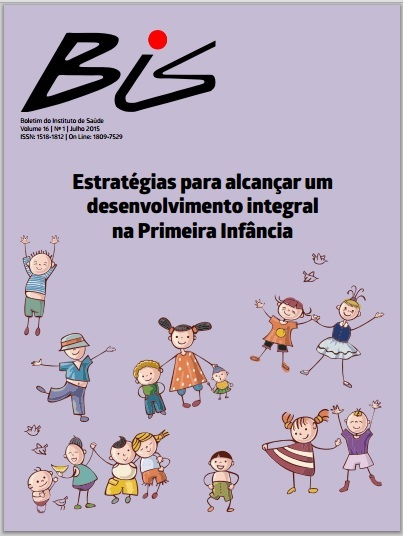Abstract
This article is intended to provide a brief history of breastfeeding and different movements that have taken place in order to rescue this practice since the 70s, which had repercussions in Brazil with the defi nition of various strategies and actions in the fi eld of public policy. It highlights the scientifi c evidence on the role of breastfeeding in reducing infant mortality and called attention to the latest studies linking breastfeeding to prevent chronic diseases. Finally, emphasis is on the importance of breastfeeding for the integral development of the child; It highlights that the evidence presented in this brief essay should have important implications for child health policies, especially those related to the development of Early Childhood, since strongly suggest that investing in breastfeeding promotion may result not only in improved physical health but also the promotion of better intellectual and psycho-emotional outcomes.
References
2. Feachem RG, Koblinsky MA. Interventions for the control of diarrhoea diseases among young children: promotion of breastfeeding. Bulletin of the World Health Organization. 1984; 62:271-291.
3. Goldenberg P. Repensando a desnutrição como questão social. Campinas: Unicamp, 1988.
4. Horta B, Victora CG. Long-term effects of breastfeeding. A systematic review. Genebra: World Health Organization; 2013.
5. Jones G, Steketee RW, Black RE, Bhutta ZA, Morris SS. Bellagio Child Survival Study Group. How many child deaths can we prevent this year? Lancet. 2003; 362:65-71.
6. Lucas A, Morley R, Cole TJ, Lister G, Leeson-Pagne C. Breast milk and subsequent intelligence quotient in children born preterm. 1992; 339(8788):261-264.
7. Ministério da Saúde. Secretaria de Atenção à Saúde. Dez passos para uma alimentação saudável: guia alimentar para menores de dois anos – um guia para o profi ssional da saúde na atenção básica. Brasília (DF); 2010.
8. Ministério da Saúde. Secretaria de Atenção à Saúde. Saúde da criança: nutrição infantil – aleitamento materno e alimentação complementar. Brasília (DF); 2009.
9. Pérez-Escamilla R. Infl uence of breastfeeding on psychosocial development. In: Tremblay RE, Barr RG, Peters RDeV, editores. Encyclopedia on Early Childhood Development [on-line] Montreal, Quebec: Centre of Excellence for Early Childhood Development; 2005. p.1-6 Disponível em: http://www.excellence-earlychildhood.ca/ documents/Perez-EscamillaANGxp.pdf
10. Rea MF. Refl exões sobre a amamentação no Brasil: de como passamos a 10 meses de duração. Cad Saude Publica. 2003; 19 Suppl 1:S37-S45.
11. Venancio SI, Saldiva SRDM, Monteiro CA. Tendência secular da amamentação no Brasil (1975-2008). Rev. de Saúde Pública. 2013; 47:1205-1208.
12. Venancio SI. Formação de redes e ações para apoio, promoção e proteção do aleitamento materno. In: Cardoso MA, organizadora. Nutrição e saúde coletiva. São Paulo: Atheneu; 2014. p.283-292.
13. Victora CG, Aquino, EMML, Leal MC, Monteiro, CA, Barros, FCLF, Szwarcwald CL. Saúde de mães e crianças no Brasil: progressos e desafi os. The Lancet. Health in Brazil. 2011; p. 32-46. Disponível em: http://download.thelancet. com/fl atcontentassets/pdfs/brazil/brazilpor2.pdf
14. Victora CG, Barros FC, Horta BL, Quevedo L, Pinheiro RT, Gigante DP et al. Breastfeeding and school achievement in Brazilian adolescents. Acta Paediatr. 2005; 94:1656-1660.
15. Victora CG, Barros FC, Horta BL, Quevedo L, Pinheiro RT, Gigante DP et al. Association between breastfeeding and intelligence, educational attainment, and income at 30 years of age: a prospective birth cohort study from Brazil. The Lancet. 2005;3(4):1199-e205. [acesso em abr 2015]. Disponível em: www.thelancet.com/lancetgh.
16. Victora CG, Smith PG, Vaughan JP, Nobre LC, Lombardi C, Teixeira AM et al. Evidence for protection by breastfeeding against Infant deaths from infections diseases in Brazil.The Lancet. 1987; 2:319-321.

This work is licensed under a Creative Commons Attribution 4.0 International License.
Copyright (c) 2022 Sonia Isoyama Venancio
